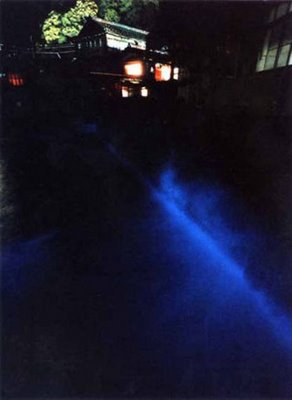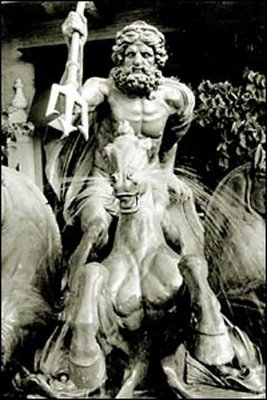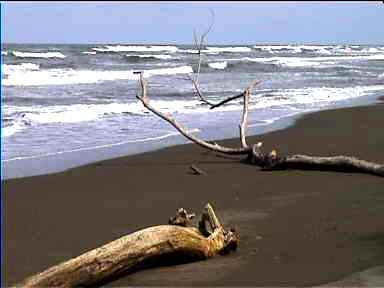Cup Two: Aphrodite Ourania

OURANIA
Queen of depths and nights
No sea or sky has mastered,
You are the immortal kiss
Which blessed my blind
Disaster, bidding me stumble
Room to bed to shore in search
Of augment equal to the moon
You lifted clear of me.
Unvowelled ache to arch
A name, my longing was
Drowned in one long
Night, pickling me in the
Way of drunks, my heart
No longer free or solid or
Sane for good, the shape
Of ecstasy flung too far.
You hinge that wild blue door
Forever creaking just offshore.
***
When I was eleven or so I attempted to go on my first date with Lauren Knipmeyer, a wonderful tall eight-grade classmate who had this breezy broken aura, pretty in the floodwaters of pubescence yet dangerously faulted by some violence in her past (a bad daddy, I seem to recall her once saying). Building up my courage for weeks, I finally asked her walking her home from school if she would like to go bowling the following Saturday. She was quiet for a time, looking elsewhere at the big Victorian houses we passed (we lived in Evanston, one of the first suburbs of Chicago on the near north side): finally she whispered something which sounded like a yes. (Thinking back, it could easily have been a sigh, but I wanted a yes from her more than anything else in life). We agreed to meet at noon Saturday on the schoolyard of Dewey Elementary nearby. (She was adamant about me not picking her up at her house.)
My elation and wonder the next few days was unsurpassed in all of my previous experience. Finally --finally!-- I was getting out of that bad childhood where I was some dork fatty, smart to a fault and faulted every way in physique. I’d gotten more than a few beatings on that schoolyard at Dewey Elementary, and here I was to return there to pluck my date like a blossom and begin all that would follow in my life. How my imagination teemed in the waters of Aphrodite Pandemos!
The day arrived and I showered and groomed excessively, imagining that boy’s face in the mirror to be a Bond, elegant and smooth and exuding unspeakable capabilities. My feet walking the sidewalks to the school sounded like the ostinato steps of Bond as he entered a casino, surrounded by the lush violins of the James Bond Theme. My heart was in readiness as I waited on that deserted playground, full of every expectation of love that I was sure that would come to me in the form of that willowy broken girl, prettier surely than I deserved, a gift from the gods, oh heck, perhaps a goddess...
The school had a clock tower which chimed off my vigil every quarter hour, deepening the sound of my first tragic encounter with the Aphrodite: 12:15, 12:30, 12:45, 1. The day was empty, perhaps early spring, I dunno, filled with the sound of those schoolbells echoing everywhere She could not be found or revealed. 1:15, 1:30, 1:45. I finally, finally accepted what I always suspected -- that I was a fool for hoping, for believing, for dreaming that my lot would finally change, that I wouldn’t have to go home to that terribly isolate space where I lived as a prisoner of self.
But it was true, all too true. “Fool” was the sound of those bells when they ebbed into silence, like a dream ebbed to nothing. Fool -- for believing, for knowing what I could not know, for letting myself get poured insanely by the first cup of Aphrodite.
***
Here I (we, for any who cares) proceed to the second cup of Aphrodite, as empty as the first one was full: Aphrodite Ourania, queen of Heaven, goddess of Beasts, meme of the bitterly crashing, empty sea, archetype of absence, dark twin of presence, the resonance of ebbed presence. We are filled with the first cup and drained by the second, harrowed by depths which came to us through a merry glittery surface.
A story of this Aphrodite appears in Theocritis, retold by Carl Kerenyi in “The Gods of the Greeks.” In revenge for causing Zeus to fall in love with mortal women and neglect his own wife-sister Hera, Aphrodite is compelled to fall in love with the herdsman Anchises, who tended his cattle on top of Mount Ida. Aphrodite looked once at him and is stung, believing him as beautiful as the immortals. She falls in love with him, and, preparing to woo him, hastens to her temple in Paphos where the Graces bathe her and anoint her in the oils of the immortals.
In beautiful raiments and adorned with gold she returns to Troy where she makes her way up Mount Ida. In her train wolves and tigers, bears and leopards follow, as enrapt with her as she is delighted in them. She smiles and the beasts drift off in pairs to couple in the forests. Queen of Beasts, indeed, climbing the mount.
Aphrodite enters the hut of Anchises and finds him playing a lute. Aphrodite presents herself as a mortal woman, by Anchises is so astonished by her raiment and adornment and shape that he declares her a goddess, promising her altar and sacrifices and seeking her blessing for his posterity. Aphrodite then lies to him, saying she was abducted by Hermes from the choir of Artemis to be his bride.
She begins to speak of all the arrangements which must be made -- she must be untouched until his parents and brother have seen her to their approval, arrangements for a dowry made, etc. etc.: but Anchises is only provoked to greater desire by these mortal procedures of sacrament, and declares, “If you are a mortal maiden, and destined to be my wife, then neither god nor man shall hold me back form you. Even though Apollo should thereafter slay me, I wish to love you now, at once, and then die!” He seizes Aphrodite’s hand, leads her back to his bed, and falls on the maiden like a beast of prey, laying with the goddess in accordance with the will of Zeus wholly unaware of who she is.
They drowse a while, and then Aphrodite wakens him, revealing herself to him in her true form and beauty. Anchises is horrified, covering his face and begging for mercy, for he knows it is death for a mortal man to sleep with a goddess.
Aphrodite prophesies that the son of their union will go on to greatness -- indeed he will become Anaeas, founder of the Rome -- but for Anchises, well, Aphrodite is ashamed of their union, and makes him promise never to reveal who the mother of his son is, when the nymphs in her retinue return the boy to him. She warns that the bolts of Zeus would punish him for saying so. One later report has him lamed by a lightning-stroke, while another has punished with blindness for seeing a goddess naked. Bees stung out his eyes.
***
So here is an encounter with the immortal part of the feminine, extrahuman, the One who is always over the Beloved’s shoulder as she smiles at us, a welcome which is inexpressibly absent in the real woman, no matter how far and long we search. Queen of heaven, queen of beasts, mortal consequence of immortal desire, Aphrodite Ourania is the confusion in our hearts of archetype and its projection, whereby we look for something not found on earth, are stung so badly by momentary infusions of the divine that we can’t see things properly again.
Aphrodite is not Psyche, the mortal soul; but there is always a perilous coniunctio or shore where the commingle. In the story of Eros and Psyche told by Apuleius, when men fall so much in love with the beautiful mortal Psyche they neglect the altar Aphrodite. Angered, the goddess is harsh in her punishments of the mortal woman. In the end, though, it is Psyche who successfully woos away Aphrodite's son Eros, making him a man through love, so to speak. Suffering the labors of that cruel mistress of desire, Psyche slowly finds a shore which is not tranced and trapped and devoured by Aphrodite.
***
Aphrodite Ouranous suggests the dark side of love, its shadowy other. As Eros had a twin Himeros (“Desire”), so Aphrodite Pandemos has her doppler Ourania, the wild cathedral arch of eternal silence and remove: the night sky over the sea, the bare mountaintop above the fertile glades. (We find Pothos and Penia -- “Plenty” and “Want” -- both in Aphrodite’s train). We would have our lovers Aphroditean, nublile and ripe-nippled, deep as the sea in their desire for us, goddess of curve and smash in the slakings of the surf: Yet such identification is always perilous, a confusion of the elements, worship at the wrong altar. And then one night the heavens crack and She does appear, or someone so close in appearance that we don’t see it, refuse to for the rest of our lives spent trying to find her again.
However, I come to think that Her seduction is a natural part of our psychic growth. As James Hillman says, anima uses the guise of Aphrodite to lead us into our depths. Why else cross that ocean bridge, so wild and terrible and into regions too mysterious to name?
Here’s Hillman, in “Anima: An Anatomy of a Personified Notion”:
***
... Though anima is not eros, her first inclination is toward love. So she seduces in order to be turned on, set afire, illumined. So she makes advances in order to move pure reflection into connection. So she commands an incredible range of voluptuous imagery in order to draw eros down upon her for what Plato called “generation,” or soul-making. Nevertheless, though love be essential to soul, as theology insists and psychotherapy confirms, and that soul be that by which we receive love, soul is not love. (33)
***
“Soul is not love” -- slippery notion indeed, with all of that crashing of foamed ceruleans at our knees! Desire and then love certainly lead us to a point of leaping, but when we jump, it’s never, IMO, into a beloved but rather into a deeper notion of ourselves. We do not fall in love so much as fall off its boat into soul.
I don’t think we realize this until after She disappears, fading from whoever we see her reflection in, or that person fades from us. Here is the black Aphrodite, Melainis “the black one” and Skotia “the dark one”, queen Pasiphassa “the far shining” moon, Tymborychos “the gravedigger” who exults in our reckless fruitless gambits, Morpho “of various shapes” who has many waves but is one sea. We are left standing on a crashing shore in full moonlight more alone that ever, deafened by the sound of the big night music, blinded by the dazzle of light across black water. It is a baptism by absence, and through it, drained by the second cup of Aphrodite, we are somehow reborn, reverencing the silence booming through our empty selves.
In an essential way, my obeisance to Aphrodite Ourania is altared in the memory of that empty Saturday when I was eleven, waiting and waiting and waiting for a love which never arrived and has been a strange companion ever since.
FULL MOON ON COCOA BEACH
I.
The surf was pounding
the air when we climbed
out of my car, hurling
sea mist toward
a full moon now
breaking from clouds.
The pier was closing early
that night, swarmed
by the high surf
of a hurricane's
turbulent pass
many miles to sea.
The guard said
an advisory was out
for a high tide come morning
with fifteen foot waves.
We leaned on a rail
halfway down the pier
and watched the night.
The horizon a wash of
foam and darkness.
Shards of moon
scattering like silver fish
in the glassy curl
of a wave before tumbling
into foam and thunder
and rocking the pier.
You leaned to watch
a wave pass under,
your dress fanning
wild in the breeze.
The wave I felt
curved that satin and
the mystery beneath
into moon and sea.
II.
Later we walked on
the beach, found
a place to sit
and talked a long while,
telling our stories
as warming strangers do
who find the distance
between them narrowing
to less than tissue.
It was after midnight.
The beach, the sea,
the moon took us
somewhere
on a silver stream.
It was a gift
that rose unhurried
from the depths of
some heart which must have
always known these things,
recalled from old loves
or the salt soundings of the womb
or perhaps the full store
of ineffable moments
a man and a woman
have ever stumbled on together,
a silver strand of DNA
pulsing and receiving
this tide.
Having forgotten joy
for so long on a road
of deaths small and large,
having gotten so lost amid
hurry and complication
and complacence,
that night slapped
me back to life.
Warmed by something
I can never name,
we opened our arms
to one embrace
and then walked
back to my car,
each of us more
alone than ever.
***
THE LOST HOTELS OF PARIS
Jack Gilbert
The Lord gives everything and charges
by taking it back. What a bargain.
Like being young for a while. We are
allowed to visit hearts of women,
to go into their bodies so we fell
no longer alone. We are permitted
romantic love with its bounty and half-life
of two years. It is right to mourn
for the small hotels of Paris that used to be
when we need to be. My mansard looking
down on Notre Dame every morning is gone,
and me listening to the bell at night.
Venice is no more. The best Greek islands
have drowned in acceleration. But it’s the having
not the keeping that is the treasure.
Ginsberg came to my house one afternoon
and said he was giving up poetry
because it told lies, that language distorts.
I agreed, but asked what we have
that gets it right even that much.
We look up at the stars and they are
not there. We see the memory
of when they were, once upon a time.
And that too is more than enough.
-- from Refusing Heaven (2005)
***
LONGING
2002
I sometimes wonder whether longing
can’t radiate out from someone so
powerfully, like a storm, that nothing
can come to him from the opposite
direction. Perhaps William Blake
has somewhere drawn that?
— Rilke, letter, 1912
There is a longing in us which
grows from sigh to starry shriek.
Perhaps comets are charred furies
of that pain, a whirl of frozen fire
which ghostlike tears to God’s porch
and back, insatiable and unanswered.
Perhaps. All I know is that
it’s infinitely perilous to think
that longing has a human end.
In my cups I once believed
a woman mooned for me,
her longing a white welcome
over my million nights alone.
I met and passed her many times
those hard years, blinded by the aura
of her unvowled name.
Surely when two longings touch
it’s like when great waves collide,
the wild sea witched flat.
Our deeper thirst can never sate:
as each draught of booze
was never enough, so each
embrace tides a milkier door.
I recall a young man
walking home drunk on a
frozen night long ago,
his beloved nowhere
to be found in the chalice
he had named. Winds hurled
steel axes through the
Western sky, failing to clear
the cruel foliage of fate.
In his defeat he was greater
than any angel beckoned
by that night: his heart so
hollowed by longing
as to chance in pure cathedral,
her absence the clabber of a bell
shattering the frozen air,
trebling the moon
without troubling a sound.
















